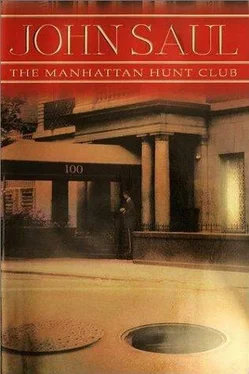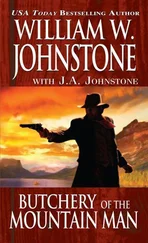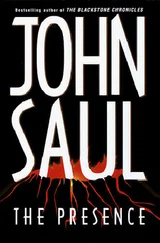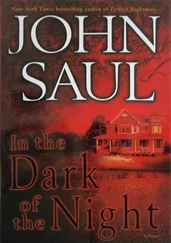"Not much," Ryan sighed, shaking his head. "I wish there was-I really do. And a couple of the guys upstairs are on it, so maybe we'll still find the perp, you know?"
"They here?" Keith asked. "The guys upstairs?"
The desk sergeant glanced at the board on the far wall, then shook his head. "Maybe a half hour or so. You can wait over there." He tilted his head toward a bench that sat against the wainscoting-painted the same ugly shade of blue as the outside doors-then picked up a phone that had started ringing. "Fifth Precinct, Sergeant McCormick."
"Maybe I'll come back later," Keith said.
But as he left the precinct, he was pretty sure he wouldn't be back.
The morning looked a lot warmer than it was, and Keith hunched his shoulders against the chill wind blowing down Elizabeth Street as he headed up toward Kenmare, which would run into Delancey at the corner of Bowery. Though he was only a couple of blocks from the collection of massive gray stone buildings that housed the city's government, he might as well have disappeared into another world. Elizabeth Street was lined on both sides with buildings of no more than four or five stories, with businesses operating on the sidewalk level and laundry hanging from lines strung between fire escapes on the floors above. Half the shops were grocery stores, though the Chinese fruits and vegetables they displayed were mostly unrecognizable to him. He had to thread his way through a milling throng of people who neither smiled nor nodded, let alone made any move to give way when there wasn't enough room for two people to pass. Once, a horn blasted as he stepped into the street to avoid a pack of hard-looking teenage boys with rings in their ears, lips, and noses, only to have one of those he was avoiding grab his arm and snatch him back onto the sidewalk an instant before the cab would have run him down.
"Watch it, man-you wanna get yourself killed?" the kid asked.
"Thanks," Keith said, but found himself talking to no one; the kid and his friends were already several yards away, and it was as if he no longer existed. Turning away from them, he bumped into a burly man slinging a barrel of garbage into a truck. As oblivious to him as the kids now were, the garbage man hardly glanced at him, going on with his work as if nothing had happened.
By the middle of the next block, Keith found himself doing his best to ignore the people around him, concentrating instead on the sidewalk directly ahead. Twice he made the mistake of waiting for a light to turn green at an intersection, and was nearly trampled by the crowd that ignored it. By the third block he discovered the trick everyone else already seemed to know-if you don't look at the cabs, they won't hit you. In fact, the cabbies didn't even bother to honk or curse at him, but let him cross with the same impunity they granted the city's natives.
At the corner of Kenmare, he turned right toward Bowery and Delancey-the intersection where the accident had taken place. He wasn't sure what he'd been expecting, but the vague sense of letdown-almost of disappointment-he felt at the corner's normality told him he must have been expecting something.
The bustling Asian community of Elizabeth Street suddenly gave way to restaurant equipment stores, except for one restaurant that seemed to be left over from an era when the neighborhood had been mostly Italian. Window after window displayed commercial mixers and kitchen equipment, bar glasses and furniture, and more kinds of lighting fixtures than Keith had even thought existed. It was almost devoid of people on the sidewalk, and there were no apartments above the businesses.
No windows from which some early rising resident might have seen what had happened yesterday morning.
It was just another impersonal city intersection, the cars heading east into Delancey and toward the Williamsburg Bridge waiting impatiently as the streams of traffic on Bowery flowed north and south.
No sign of the accident at all, except for the boarded-up windows of the restaurant supply house the van had careened into after the car struck it.
No sign that someone had died here only a little more than twenty-four hours ago.
This morning, with the sun shining incongruously on the spot where the black van had burned, it seemed almost impossible that it could have happened, and he stood for a moment on the southeast corner, trying to picture the scene from early yesterday morning. The van would have been coming from the west, heading toward the bridge. The car that hit it must have been going north on Bowery, and very fast-Keith had a pretty good idea how heavy a Ford van was, but could only guess how much force it would take to smash in the door of a reinforced van and knock it all the way across the street and into the building's windows. After it hit the van, the car's momentum would have carried it farther north, though the deflection of the crash should also have sent it skidding eastward.
He crossed the street, and twenty yards to the north found a wall that looked as if a car might have rubbed against it, leaving flecks of paint on the deeply gouged surface. His fingers unconsciously tracing the marks the careening car had left, he looked back toward where the van had burned.
"Man, it was somethin‘," a slurring voice said.
Startled, Keith looked down to see a crumpled figure covered with enough ragged and filthy clothing that he was almost invisible, curled in the doorway of an empty store. He was peering blearily up at Keith through eyes so bloodshot their color was indistinguishable, and under the layer of grime that stained his skin, a vast network of ruined veins and scabrous sores spread over his features.
"Shoulda seen it, man-looked just like the fires of hell."
Keith's pulse quickened and he squatted down. "You were here yesterday morning?" he asked. "When the van burned?"
The man's lips twisted in a lopsided grimace, revealing the stumps of half a dozen broken teeth. "Where else am I gonna be?" His rheumy eyes fixed on Keith. "You got a couple'a bucks? I ain't ate in a while."
On any other day Keith would have walked away from the man, probably not even looked at him if he could have avoided it. In Bridgehampton, the man couldn't have stayed on the streets more than a few minutes before the police force-if you could really call Bill Chapin and his three deputies a force-would have hustled him onto a bus with a one-way ticket back to Manhattan. Certainly, he wouldn't have been allowed to roam the streets long enough for any of the town's wealthier citizens to have their weekend spoiled by stumbling across him.
But this wasn't an ordinary day, and Keith wasn't in the familiar confines of Bridgehampton, and instead of quickly standing up and walking away, he pulled his wallet out of his hip pocket.
It flipped open the same way it always did: to Jeff's graduation photo, taken almost a year ago.
Keith's stomach tightened as he gazed at the photograph. Taking out a five-dollar bill, he turned the wallet toward the man leaning against the building. "Did you see this person?" he asked. "Yesterday morning?"
The drunk peered at the photo. "Nah," he mumbled. "Who's that?"
"My son," Keith said. "He was-" He fell abruptly silent and flipped the wallet closed as the surrealism of the entire scene suddenly closed in on him. How had this happened? How could he explain to this man-this man whose own life had devolved down to sprawling in a doorway at ten o'clock in the morning-what he was doing here? Why would the man even listen, let alone care?
What was he even doing here?
Grasping at straws, just like Mary had said.
The drunk, his eyes glued to the five-dollar bill, said, "Onliest guy I saw was the one from the van."
Keith's pulse quickened. "The driver?"
Читать дальше












